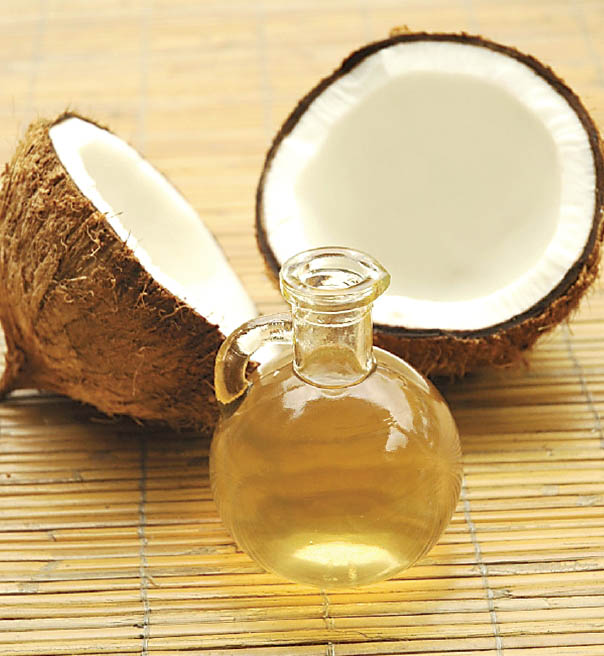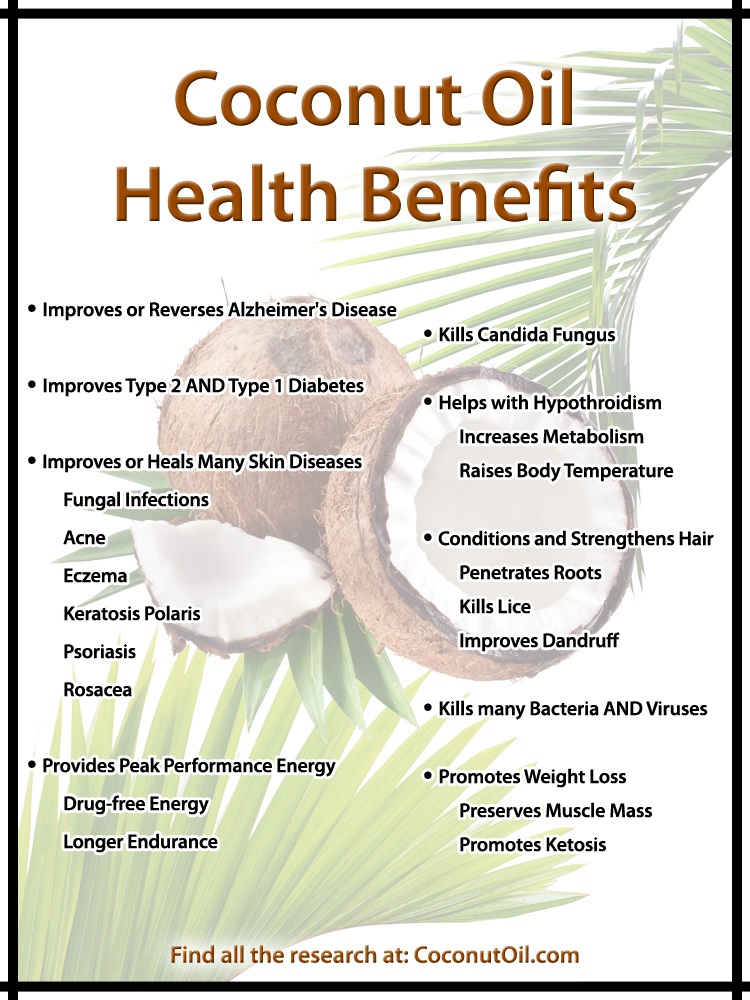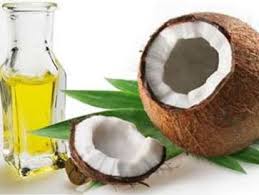Hypothyroidism is one of my major health concerns. My natural doctor, Dr. Jimmy Dy Liacco, recommended I take L-Thyrosin, Kelp and Thyroxin however it sometimes becomes a challenge to take all the supplements daily including that for my diabetes that the first three supplements usually take a back seat. I intend to see him again before christmas to go over my supplementation. Luckily, I had been aware of the many ills of synthetic medicine when traditional MD’s started requiring me to take HRT. No way, I said and I never went back. I knew it was cancerous.
In the meantime, I just read this interesting article on how coconut oil can greatly aid in this thyroid problem. For us in the Philippines, this is just way too convenient as coconut is abundant and cheap!
There are many published studies on the relationship between coconut oil, metabolism and weight loss. Research shows that coconut oil contains unique fatty acids that stimulate metabolism, supply the body with tremendous energy, and promote weight loss. Most people are unaware that hypothyroidism is an autoimmune disease and this is one of the main reasons why conventional pharmaceutical treatments are ineffective for more than 80 percent of patients with sluggish thyroids.
To Address The Thyroid You MUST Understand Inflammation
This self-attack by the immune system increases inflammation. And inflammation has a profound effect on all aspects of thyroid metabolism and physiology.
First, inflammation suppresses the hypothalamus-pituitary-thyroid (HPT) axis. One study showed a single injection of the inflammatory cytokine TNF-alpha reduced blood levels of TSH, T3, free T4, free T3 and TRH for5 days. This shows inflammation disrupts the production and regulatory mechanisms of thyroid hormones. Thyroid medication will increase the levels of T4 (and possibly T3), but it doesn’t address the other effects of HPT axis suppression.
Second, inflammation decreases both the number and sensitivity of thyroid hormone receptors. If there aren’t enough receptors, or they aren’t sensitive enough, it doesn’t matter how much thyroid medication we take. The cells won’t be able to use it. It’s like when my grandpa used to turn down his hearing aids while he was watching the football game. It didn’t matter how much my grandma yelled at him — he couldn’t hear a word she said.
Third, inflammation decreases the conversion of T4 to T3. T4 is the inactive form of thyroid hormone. The body has to convert it to the active T3 form before it can be used. Most synthetic hormone medications on the market are T4. If you give a T4 medication (like Synthroid, Levoxyl, Unithroid, etc.) to someone with inflammation, it’s not going to work because they can’t convert the T4 to T3.
A TSH test is just one part of the overall picture. You can have a TSH that falls in the “normal range,” or is in the higher or lower end of normal, but you can actually have a thyroid problem or autoimmune thyroid disease. A good practitioner doesn’t rule out a thyroid condition solely on the basis of a TSH, but instead, runs additional tests, such as Free T4, Free T3. Thyroid antibodies can diagnose autoimmune conditions long before other blood values become abnormal. AND, treatment for people with antibodies can actually help forestall full-scale development of thyroid disease in some people!
Long-term suppression of thyroid stimulating hormone (TSH) causes cardiac side-effects and contributes to decreases in bone mineral density (high TSH levels are also well known to contributes to osteoporosis.) It may also cause elevated blood glucose levels, heart failure, coma and adrenal insufficiency. TSH directly influences the whole process of iodine trapping and thyroid hormone production so use of synthroid directly affects how the body metabolizes iodine.
The only way to do that is to address the problem at its root by regulating the immune system and decreasing inflammation.
Other Causes of an Unbalanced Thyroid?
A sluggish thyroid may be triggered by many unseen causes, including…
- MSG and bad fatty acids, so common in our diet, can weaken your thyroid.
- A deficiency of iodine is on the rise, and without enough iodine, your thyroid won’t produce the hormones you need.
- As you age, your risk of an unbalanced thyroid dramatically increases.
- Popular prescription drugs for your heart, bones and blood sugar can lead to a sluggish thyroid.
- Exposure to too much fluoride or chlorine in drinking water can interfere with normal thyroid function.
- Menopause or pregnancy and treatments such as Estrogen Replacement Therapy can throw the thyroid out of whack.
- A family history of thyroid concerns may cause thyroid dysfunction.
- Autoimmune health problems can cause your thyroid to go haywire.
Coconut Oil Regulates The Immune System and Decreases Inflammation
Coconut oil has always received a criticism because a group of scientists had incorrectly promoted that it increased LDL cholesterol. However, it never did increase LDL cholesterol, but it did increase HDL or good cholesterol. That distinction was never corrected in the mainstream press and the misconception still continues to this day.
“Why the mainstream persists in this delusion of criticizing coconut oil is beyond the understanding of many in the natural food industry,” said raw food expert and retailer Ian Macdonald.
“You know you’re on to something healthy when national and international health agencies are advising AGAINST it,” Macdonald stated. “This is typically due to influences from pharmaceutical and high profile corporations who strive on keeping the population sick and diseased,” he added.
For example the Food and Drug Administration (FDA), World Health Organization (WHO), International College of Nutrition, the United States Department of Health and Human Services, American Dietetic Association (ADA), American Heart Association (AHA), British National Health Service (NHS), and Dietitians of Canada all simultaneously recommend AGAINST the consumption of coconut oil. Unfortunately, and against the better interest of the public, none of the above organizations have a track record of recommending healthy solutions for the public, so Macdonald suggests that when these organizations recommend against something, “that is your cue to incorporate it into your diet, with proper research of course.” Coconut oil may be the perfect example.
50 percent of the fat content in coconut oil is a fat rarely found in nature called lauric acid. Your body converts lauric acid into monolaurin, which has anti-viral, anti-bacterial and anti-protozoa properties. Lauric acid is a powerful virus and gram-negative bacteria destroyer, and coconut oil contains the most lauric acid of any substance on earth!
Nigel Turner and Jiming Ye from Sydney’s Garvan Institute of Medical Research compared fat metabolism and insulin resistance in mice fed coconut oil and lard based diets.
“The medium chain fatty acids like those found in coconut oil are interesting to us because they behave very differently to the fats normally found in our diets,” said study leader Turner.
“Unlike the long chain fatty acids contained in animal fats, medium chain fatty acids are small enough to enter mitochondria – the cells’ energy burning powerhouses – directly where they can then be converted to energy.”
Coconut oil has a direct effect in suppressing inflammation and repairing tissue, and it may also contribute by inhibiting harmful intestinal microorganisms that cause chronic inflammation.
Many people who have suffered with inflammatory conditions of the intestines like Crohn’s disease have successfully used coconut oil for its anti-inflammatory and soothing properties.
The medium-chain fatty acids and monoglycerides found in coconut oil are the same as those in human mother’s milk, and they have extraordinary anti-inflammatory and antimicrobial properties. By disrupting the lipid structures of microbes, they inactivate them. Lauric acid, its metabolite monolaurin and other fatty acids in coconut oil are known to protect against infection from bacteria, viruses, yeast, fungi and parasites. While not having any negative effect on beneficial gut bacteria, coconut oil inactivates undesirable microbes.
An excellent study that reviewed many previous studies on this topic was published in the Journal of Nutrition (Vol. 132, pages 329-332). This study was conducted by researchers at McGill University. They reported that several different studies have shown weight loss equivalent to 12 – 36 pounds a year simply by changing the types of oils used in everyday cooking and food preparation.
Most of the oils that we use to cook food and those used in commercially-prepared foods also have a negative affect on the thyroid. These are known as polyunsaturated or vegetable oils. They may in fact be the worst villains in the spread of thyroid diseases.
The thyroid, though small otherwise, is one of the largest glands in the endocrine system. Diseases of the endocrine system are mostly caused due to production disorders that lead to inadequacy or excess of hormones or inappropriate response to hormones by tissues.
Dr. Bruce Fife’s book Eat Fat, Look Thin explains how he discovered the relationship between coconut oil and improved thyroid health. It explains how to use coconut oil and incorporate it into a sensible diet.
Another book by Dr. Fife is The Healing Miracles of Coconut Oil andEat Fat, Look Thin which contains references to numerous studies.
Is coconut oil a thyroid cure? Not by itself. Can it help people with low thyroid function? Yes, because it stimulates metabolism and boosts energy. For this reason, coconut oil has been a blessing to many people who have been able to abandon their medications with the right combination of exercise, removal of processed foods, and a balanced diet.
Other Nutrients To Maintain and Boost Thyroid Function:
- Iodine: the chief component of thyroid hormones
Iodine is a potent trace mineral that’s vital for thyroid function. Amazingly, 75 percent of your body’s iodine is stored in your thyroid gland. Iodine is vital for your body’s metabolic processes. Incorporate foods such as seaweed, kelp, radish, parsley, fish, seafood, eggs, bananas, cranberries, strawberries, himalayan crystal salt. - Irish moss: a wonderful source from the sea
This beneficial seaweed is an excellent source of naturally
occurring trace minerals and life-enhancing nutrients. - Vitamin B-2: the “fat metabolizer”
This vitamin is essential because it keeps your thyroid humming
along. It ignites your fat-burning metabolism so you stay slim and trim and releases energy from carbs, proteins and fats so you lose more weight. - Magnesium: the “fat releaser”
Magnesium is vital because it supports many of the processes closely associated with a healthy thyroid. The problem is, 80 percent of Americans are deficient in magnesium. A magnesium deficiency can affect the ability of your cells to properly use glucose for energy and metabolism, so it’s harder to lose weight. - Manganese: nature’s slim down mineral
A number of manganese-activated enzymes play a key role in
the metabolism of carbs, amino acids and cholesterol…three things you must address if you want to be slimmer and trimmer. - Selenium: a critical mineral for thyroid function
Selenium helps convert the thyroid hormone T4 into the active form of T3 your body needs for strong metabolism and more energy. - Vitamin B3: the “energy stimulator”
This vitamin aids in the production of enzymes that convert carbs, glucose and fats into usable energy. - Vitamin B12: the fatigue fighter
This energy-boosting, fatigue-fighting vitamin fires up your
metabolism. Also helps improve blood flow, which is vital for increased energy. - Vitamin B1: the metabolism booster
Vitamin B1 is important for energy and for certain metabolic processes, especially the conversion of carbs. - Zinc Picolinate: Crucial for healthy thyroid function.
- Copper: Combines with certain proteins to help a number of body functions, including energy
- L-Tyrosine: This amino acid is beneficial for the production of thyroid hormones and helps boost mental and physical stamina.
- Vitamin B6: This key vitamin helps convert iodine to the thyroid hormone and helps your body better absorb zinc, which you need for a healthy thyroid.
Read the full article here: Prevent Disease
And in relation to Coconut, here are 10 reasons to love this fruit:
1. All Fats Are Not Created Equal
Coconut oil contains short term medium-chain saturated fatty acids (MCFAs), which is a “healthy” form saturated fat compared to trans fat. Trans-fatty acid consumption is linked with heart problems, depression and increased cholesterol levels. What does consuming MCFA fats in coconut oil mean for your body? Our body metabolizes these fats in the liver, immediately converting this into energy (fuel for the brain and muscle function) rather than it being stored as fat.
2. Helps Controls Weight
One 2009 study looked at the weight loss link between women’s consumption of coconut oil and found that it reduces abdominal obesity. Researchers discovered coconut oil is easy to digest and also protects the body from insulin resistance. To try coconut oil for weight loss start by adding one teaspoon to your diet and gradually work your way up to four teaspoons per day.
3. Eases Digestion
If you suffer from poor digestion or tummy bloating try adding coconut oil to your diet. Coconut oil has been found to benefit digestive disorders including irritable bowel syndrome and microbial related tummy bugs. Fatty acids in coconut oil contain anti-microbial properties, which have a soothing affect on bacteria, candida, or parasites that cause poor digestion.
4. Manage type 2 Diabetes
A recent study by the Garvan Institute of Medical Research found that coconut oil protects against insulin resistance, reducing the risk of type 2 diabetes. MCFA fats are small enough to be absorbed into the cells where they’re quickly converted to energy. It is this process that not only reduces the amount of fat we pack into storage, but improves insulin sensitivity.
5. Supports Immunity
Coconut oil is made up of healthy fats lauric acid, caprylic acid and capric acid which contain anti-fungal, antibacterial, antiviral properties to boost the immune system. Lauric acid contains the highest concentration of MCFA fatty acids, approximately 75 percent. The body turn this fat into monolaurin which is claimed to help heal viruses such as herpes, influenza, cytomegalovirus, helicobacter pylori and candida.
6. Boost Metabolism
A study reported in the Journal of Nutrition found that coconut oil boosts metabolism. Researchers found that participants who consumed two tablespoons of coconut oil per day burned more kilo-joules than those who consumed less. A speedy metabolism helps boost the body’s immune system and keep weight off.
7. Slows Fine Lines
Coconut is not just for your cooking – it’s a wonderfully hydrating treat for skin too. It keeps the skin’s connective tissues strong, which prevents sagging and wrinkles. Apply coconut oil directly to your skin to soften the appearance of fine lines or use it daily on your face and body for a healthy glow. Be sure you use virgin coconut oil with no additives.
8. Cooks In High Temperatures
Because coconut oil is a medium-chain saturated fatty acid, it gives it a higher smoking temperature than most polyunsaturated or monounsaturated oils. If you’re preparing recipes that require high temperatures you should consider coconut oil for this type of cooking. Unlike olive oil which will oxidize at high temperatures, creating free radicals.
9. Stops Sugar Cravings
Instead of reaching for the lollie-pop jar for an afternoon sweet hit, try eating a teaspoon of virgin coconut oil to beat sugar cravings. This is because good quality fat is more satiating than carbs, so if you cut down on sugar you will feel less ‘ravenous’.
Most of us do not realize but constant hunger is a major clue that your body is not being fed correctly. With the proper amounts of fats and protein, you can fuel your energy reserves properly, and come off the sugar roller coaster that many of us are on.
10. Coconut Oil Makes Delicious Desserts
Try this recipe for a nutritious high protein, gluten and dairy free coconut treat.
1 tablespoon of coconut oil
1 cup of almonds or walnuts (soaked for at least 4 hours or overnight)
5 organic dates soaked in hot water to soften (or raw honey to taste)
3 tablespoons of raw cocoa powder
Shredded coconut (check it contains no preservatives)
Place all ingredients in a food processor. Roll into small bite size balls and roll into shredded coconut. Place in the refrigerator for 15 minutes to set.
Other sources:


